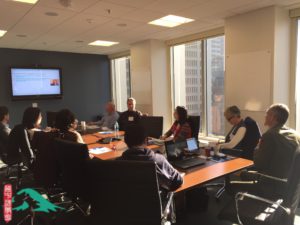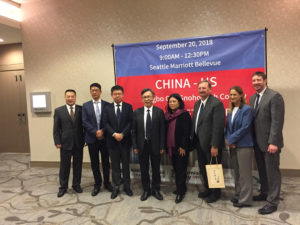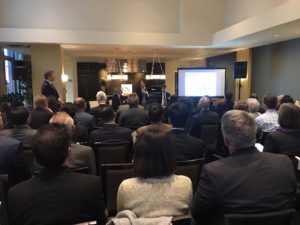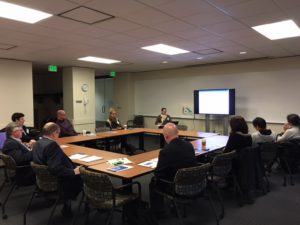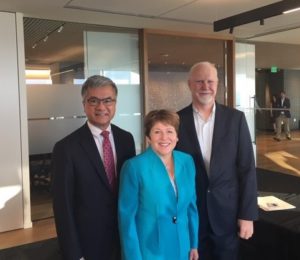 WSCRC along with Davis Wright Tremaine and the UW School of Law Global Business Law Institute hosted a dialogue about US China trade on September 6th, 2019.
WSCRC along with Davis Wright Tremaine and the UW School of Law Global Business Law Institute hosted a dialogue about US China trade on September 6th, 2019.
Representative Rick Larsen (Dem. 2nd District) and Dr. Lisa Brown, Director of Commerce for Washington State, provided comments and then engaged in a discussion moderated by former Ambassador to China Gary Locke. Director Brown outlined the importance of trade with China to Washington’s economy and noted that the State will soon send a trade delegation to China. Representative Larsen commented that there is a consensus in the Congress about what’s wrong with the US-China trade relationship but there is currently no coherent strategy to address the problems.
After a series of probing questions posed by Ambassador Locke, a lively Q and A concluded the session.
